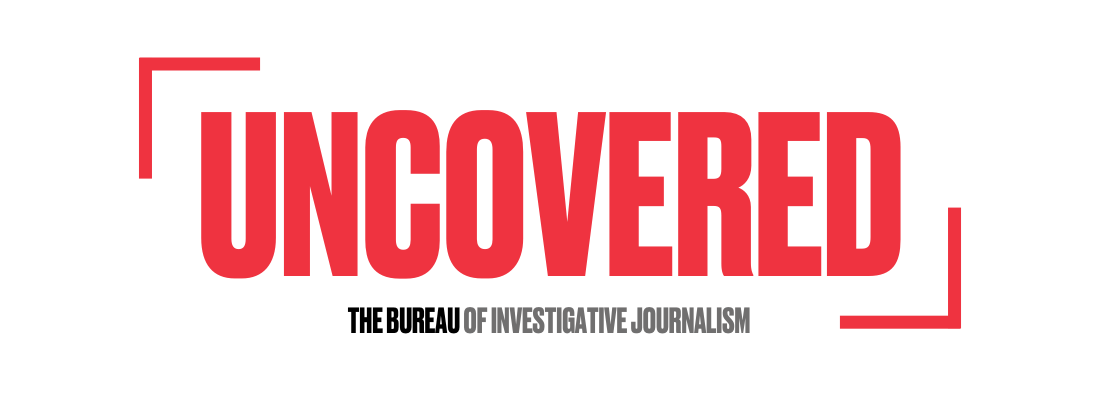
“It wasn’t just another story – it was a catalyst that saved lives”
Hi {{ First name | there }},
There’s lots coming down the pipeline here, but this week I wanted to hand over the reins to a project we’ve been running for several months now – our second newsletter, The Spark.
At the Bureau of Investigative Journalism (TBIJ), we make impact a priority. From choosing what we investigate to how we tell stories and who we get involved, we try to make sure our work sparks change and improves the world.
We’re not the only newsroom with this philosophy. So we set up The Spark to bring together stories from across the world where journalists – working with communities, activists, campaigners and many others – accomplished real change. Every Wednesday, Lucy Nash, one of our impact producers, writes about one or two investigations with tangible impact.
As it so happens, this week’s edition is about a TBIJ story – and one that’s particularly timely, given the fifth anniversary of the first Covid lockdowns. So I’m going to hand over to Lucy:

The world feels very different from five years ago. We are now fighting to keep up with a change in world order, a fracturing of the Western bloc and a US that appears more supportive of Russia than of Europe.
We’ve been talking a lot in the newsroom at TBIJ about how we can ensure our work makes things better and holds power to account. It’s a strange new world where a tech oligarchy seems omnipotent. But we still want our investigations to improve things, give voice to those who are marginalised and promote positive change.
Given some governments are acting with impunity, one pressure point that may be more fruitful is looking at businesses. Changing how a company operates can make a huge difference to those at the sharp end of poor business practices.
And that’s what we did five years ago, when the battle we fought was against an invisible enemy: Covid-19. As a newsroom, we adapted our approach and focused our work on the provisions in place to protect and treat people against the disease.
One of the big investigations we worked on was about oxygen. With no cure for Covid-19, oxygen was – and still is – a key treatment. As lungs become damaged by the virus, people suffer extremely low oxygen levels in the blood, called hypoxaemia, which can eventually be fatal. Treatment with oxygen buys time for a patient’s immune system to clear the virus.
The same is true for other respiratory illnesses that affect our breathing, such as pneumonia. Even before Covid-19, oxygen was recognised as an essential medicine.
But as Covid-19 spread throughout Africa, shortages and high prices left patients gasping for breath.
My colleagues in the Global Health team looked into the two multinational gas suppliers who dominated the market for oxygen cylinders in African countries. Ex-employees, industry insiders and hospital staff told us that, in their opinion, the Linde Group and Air Liquide had overcharged for medical oxygen and on occasion limited hospitals’ supply.
Subsequent reporting later that year revealed accusations that Mexico’s two main suppliers of liquid oxygen had spread misinformation about onsite oxygen plants, putting profits over patients. The team also uncovered similar tactics being used in Namibia.
It was a dire situation, but after TBIJ published, we had a big win. Linde Group and Air Liquide announced landmark agreements with the global health initiative Unitaid to transform access to oxygen in poorer countries.
It was a moment to take a deep breath – quite literally – for millions of people who had been left struggling to access this basic medical necessity.
At its heart, the agreement tackled the need for better infrastructure, such as tanks and piped oxygen systems, and the companies agreed to create a framework for negotiating deals for oxygen before it’s needed. That could lead to a more reliable supply and lower prices.
“While people in rich countries have virtually unlimited access to medical oxygen, millions of children in poor countries are left gasping for breath by killer diseases like pneumonia because oxygen is either unavailable or unaffordable – or both,” Kevin Watkins, chief executive of Save the Children said at the time.
“The Covid-19 crisis has graphically illustrated why building efficient and equitable medical oxygen systems is a life and death issue. This agreement between Linde and Air Liquide will save lives – and we welcome their leadership.”
In 2023 the World Health Organization also adopted a landmark oxygen resolution that, if implemented correctly, could significantly reduce the huge number of deaths caused by poor access to oxygen.
……………………………………………………………
Information is the oxygen of the modern age. It seeps through the walls topped by barbed wire, it wafts across the electrified borders.
……………………………………………………………
Leith Greenslade is the coordinator of the Every Breath Counts Coalition, a lynchpin in the campaign for better access to medical oxygen. It was her tip off that sparked TBIJ’s original investigation.

Leith Greenslade
“In August 2020, TBIJ published a pivotal piece: ‘Lack of oxygen leaves patients in Africa gasping for air.’ That article shook up the global health establishment. It was the first serious, long-form investigation that exposed the oxygen crisis, and it triggered a much bigger media response. Stories started popping up all over the southern hemisphere.
We had been working for years on pneumonia deaths – many people don’t realise pneumonia is the leading cause of death for children under five. When Covid-19 hit, we immediately saw the risk. If this virus took off, we were going to have an oxygen crisis. But decision-makers weren’t talking about it. The WHO, UNICEF, the Gates Foundation – they were focused on vaccines and novel treatments, but nobody was talking about oxygen, an essential medicine.
The sheer scale of suffering was overwhelming. You’d clock off at midnight, try to sleep, then be back online by 6am, watching it all unfold in real time. Families in parking lots, trying to keep their parents alive in the back seats of cars because hospitals had run out of oxygen. And at the beginning of life, the newborns. In Brazil, tiny babies in neonatal intensive care units had to be airlifted out by helicopter when hospitals ran out of oxygen. The human brain is resilient, but it doesn’t take much to bring the trauma of those images back.
We needed an investigative unit because these stories were being suppressed. Governments didn’t want to admit people were dying because their hospitals had no oxygen. So we reached out to the Bureau, knowing their track record. And they did what no one else was doing: they talked to real patients, real doctors and the oxygen industry. They didn’t shy away from the worst parts – price gouging, extreme shortages, entire hospitals without supply.
The article wasn’t just reporting; it became a tool for change. We used it relentlessly to pressure global health organisations. Six months later, in February 2021, the ACT-A Oxygen Emergency Task Force was formed. It mobilised over a billion dollars to more than 100 countries. Hundreds of hospitals now have oxygen plants. Tens of thousands of oxygen concentrators have gone out. And this work is still ongoing.
Looking back, I’m confident we couldn’t have achieved this without that original Bureau investigation. It wasn’t just another story – it was a catalyst that saved lives.”
……………………………………………………………
Thanks for reading and for being part of this space where journalism and change matters. Truth is like oxygen – essential, under threat, and worth fighting for.
Have a great week and I’ll see you next time!
Lucy Nash
Impact Producer
TBIJ

I hope that gives you a flavour of The Spark. While I’m adding to your inbox, I also want to recommend this newsletter from the Global Investigative Journalism Network, of which TBIJ is a proud member:
What tools and techniques are investigative journalists around the world using to do their jobs? By taking you behind the scenes of some of the top investigations from across the globe, this newsletter provides valuable insights. Sign up free here!
What we’ve been reading
🔴 Wales’s largest police force is resisting attempts to identify an officer who illegally accessed information and leaked it walesonline.co.uk
🔴 Brazil is building a four-lane motorway through the Amazon rainforest to improve access for the COP30 climate conference bbc.co.uk
🔴 A group of bloggers on YouTube are extolling the virtues of Russia – while being paid by the propaganda channel RT istories.media
Thanks,
Franz
Franz Wild
Editor



